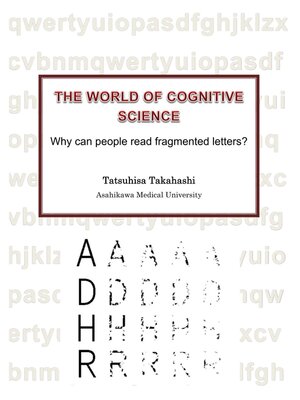The World of Cognitive Science--Why can people read fragmented letters? -
ebook
By Takahashi Tatsuhisa

Sign up to save your library
With an OverDrive account, you can save your favorite libraries for at-a-glance information about availability. Find out more about OverDrive accounts.
Find this title in Libby, the library reading app by OverDrive.



Search for a digital library with this title
Title found at these libraries:
| Library Name | Distance |
|---|---|
| Loading... |
※この商品はタブレットなど大きいディスプレイを備えた端末で読むことに適しています。また、文字だけを拡大することや、文字列のハイライト、検索、辞書の参照、引用などの機能が使用できません。
How do people identify fragmented letters? The identification of fragmented letters is one piece of evidence that the various elements of cognitive functions work well. This ability included in the cognitive functions is considered to be in common with the ability of human ancestry to distinguish animals camouflaged in jungles.
This book is concerned with a new method for examining cognitive functions with the use of a computer system presenting fragmented letters of the English alphabet. The results of the test on the identification of fragmented letters have shown that there is neither gender nor age difference in correct answer rates on fragmented letters at several fragmentation rates. The findings indicate that the ability of healthy people to read the fragmented letter as well as the full letter is unaffected by the differences in age and educational history. The book also presents the mechanism of the vision system for identification of fragmented letters.
How do people identify fragmented letters? The identification of fragmented letters is one piece of evidence that the various elements of cognitive functions work well. This ability included in the cognitive functions is considered to be in common with the ability of human ancestry to distinguish animals camouflaged in jungles.
This book is concerned with a new method for examining cognitive functions with the use of a computer system presenting fragmented letters of the English alphabet. The results of the test on the identification of fragmented letters have shown that there is neither gender nor age difference in correct answer rates on fragmented letters at several fragmentation rates. The findings indicate that the ability of healthy people to read the fragmented letter as well as the full letter is unaffected by the differences in age and educational history. The book also presents the mechanism of the vision system for identification of fragmented letters.







